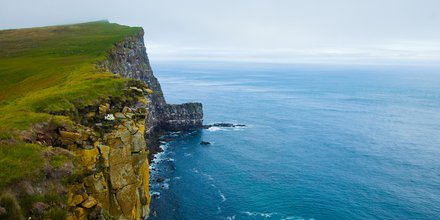Biodiversity
Our Work
Latest in Assessing the costs and benefits of biodiversity conservation
-

Socio-economic benefits of EU Marine Protected Areas
They are more than just a nature conservation tool – a study by IEEP shows how EU Marine Protected Areas help to maintain and improve the provision of a wide range of ecosystem services and related socio-economic benefits.
-
Wildlife crime and the EU
Wildlife crime threatens global biodiversity. The EU is both a destination and a transit region for illegally-traded products. A new study for the European Parliament summarises the situation in Europe and offers policy recommendations in view of the upcoming EU Action Plan. A set of in-depth case studies outline the situation in five EU countries.
-
New report: assessing the benefits of marine protected areas
Marine Protected Areas provide a range of benefits to human wellbeing, including providing food, mitigating climate change and creating opportunities for recreation and tourism. Further steps are needed to assess and communicate these benefits, this way supporting marine conservation both globally and in the EU.
-
Benefits of marine protected areas in the context of EU’s Natura 2000 network
A scoping study by IEEP outlines a step-wise methodology to assess the overall benefits provided by the EU’s marine Natura 2000 network.
-
40 years of cooperation in protecting the Baltic Sea
IEEP’s Marianne Kettunen gave a presentation at the Helsinki Convention (HELCOM) Jubilee Session on the understanding and valuation of marine ecosystem services, Helsinki, 5 Mar 2014.
-
Understanding and valuing ecosystem services provided by the Baltic Sea
IEEP’s Marianne Kettunen outlined key perspectives on the valuation of coastal and marine ecosystem services in a regional workshop on the Valuation of Marine and Coastal Ecosystem Services in the Baltic Sea, Stockholm (7-8 Nov 2013)
-
Socio-economic importance of ecosystem services in the Nordic countries
New TEEB-inspired regional assessment (published on 31 January) shows that nature and its ecosystem services are of high socio-economic significance for the Nordic countries. In order to be truly sustainable, Nordic economic systems need to build on a more comprehensive appreciation and understanding of the value of natural capital.
Highlights
-

Socio-economic benefits of EU Marine Protected Areas
They are more than just a nature conservation tool – a study by IEEP shows how EU Marine Protected Areas help to maintain and improve the provision of a wide range of ecosystem services and related socio-economic benefits.
-

Wildlife crime and the EU
Wildlife crime threatens global biodiversity. The EU is both a destination and a transit region for illegally-traded products. A new study for the European Parliament summarises the situation in Europe and offers policy recommendations in view of the upcoming EU Action Plan. A set of in-depth case studies outline the situation in five EU countries.
-

Benefits of marine protected areas in the context of EU’s Natura 2000 network
